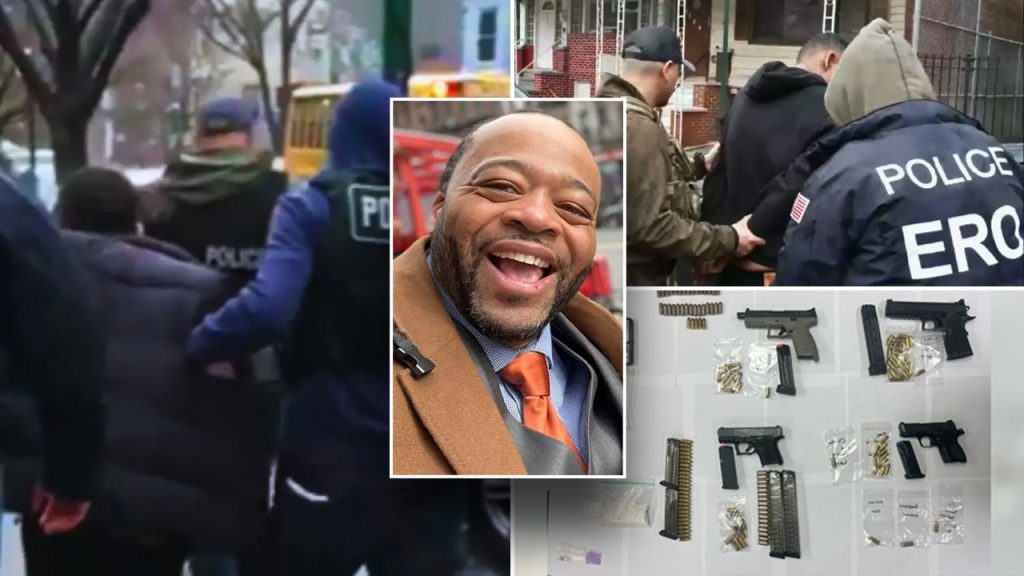The release of six suspected migrant squatters by a Bronx judge, Eugene Bowen, who was elected in 2023, has provoked controversy due to his decision to release them against the wishes of prosecutors. One of the suspects, Hector Desousa-Villalta, had previously been arrested on attempted murder charges but was released by Bowen, along with five others, without bail. This is not the first time Bowen has made headlines for controversial decisions regarding the release of suspects. In another incident, Bowen released two men who were caught on video beating up a police officer, despite prosecutors requesting bail. These decisions have sparked outrage and criticism, with the president of the Police Benevolent Association union condemning the lack of consequences for those who assault law enforcement officers.
Bowen, who was elected to the Civil Court of New York in 2022 and appointed as a judge on the Criminal Court of the City of New York, Bronx County, in 2023, has a background as a criminal defense attorney for the Legal Aid Society. In his role as a public defender, he fought for his clients in various courtrooms and appellate courts, striving to protect their rights and secure favorable outcomes. Bowen’s recent decisions to release suspects, including the suspected migrant squatters, have raised concerns about his approach to the criminal justice system, particularly in cases involving serious charges such as assault, possession of weapons, and drugs. Some critics argue that Bowen’s leniency may contribute to public safety concerns and undermine the accountability of those accused of committing crimes.
The eight migrants who appeared before Bowen last week were charged with criminal possession of a weapon, criminal possession of a controlled substance, and acting in a manner injurious to a child. Police found a 7-year-old child living in the home with the group. One of the suspects, Hector Desousa-Villalta, was arrested for pointing a gun outside the premises, while another suspect, Javier Alborno, attempted to flee with a handgun. Despite the Bronx District Attorney’s Office requesting significant bail amounts for some of the suspects, Bowen chose to release Desousa-Villalta on supervised release, prompting further criticism from law enforcement officials and the public.
Alborno, Vaamondes-Barrios, and other suspects were held after their bail amounts were set by the court, raising questions about why some individuals were released without bail while others were detained. The case has highlighted concerns about the judicial process and the perceived leniency of some judges in handling criminal cases. Former Assistant U.S. attorney Andrew McCarthy, a Fox News contributor, noted that New York’s system of electing lower court judges, often by progressive Democrats, could explain the judge’s approach. McCarthy pointed out that progressive policies, such as sanctuary city measures and criminal justice reforms, have been criticized for contributing to rising crime rates and diminishing public safety in New York City. The decision-making process of judges like Bowen has become a subject of debate and scrutiny in light of these concerns.
The release of suspected migrant squatters and other individuals involved in criminal activities underscores broader issues within the criminal justice system and the complexities of balancing public safety with individual rights. While judges like Bowen may strive to uphold the rights of defendants and ensure fair treatment, their decisions can have far-reaching consequences for law enforcement, communities, and the justice system as a whole. As debates over bail reform, criminal justice policies, and law enforcement practices continue, cases like this serve as a reminder of the challenges inherent in addressing crime, public safety, and the rights of those accused of criminal behavior. The actions and decisions of judges, prosecutors, and law enforcement officials play a crucial role in shaping the outcomes of criminal cases and maintaining a balance between accountability and due process in the pursuit of justice.


